Department of Near & Middle Eastern Civilizations (NMC), Faculty of Arts & Science, offers a summer course, “Field Archaeology in the Republic of Georgia”, for the Gadachrili Gora Regional Archaeological Project Expedition (GRAPE), an international multidisciplinary research project exploring the emergence of farming economies in the South Caucasus and the development of local Neolithic, Chalcolithic & Early Bronze Age cultures.
During this summer course, students become integral members of the GRAPE research team, actively participating in project workshops, lectures, activities, and trips. The course doesn't require any prior field experience.
Unearth the secrets of ancient civilizations and embark on a journey through time in our Field Archaeology course.
History comes to life beneath your fingertips!
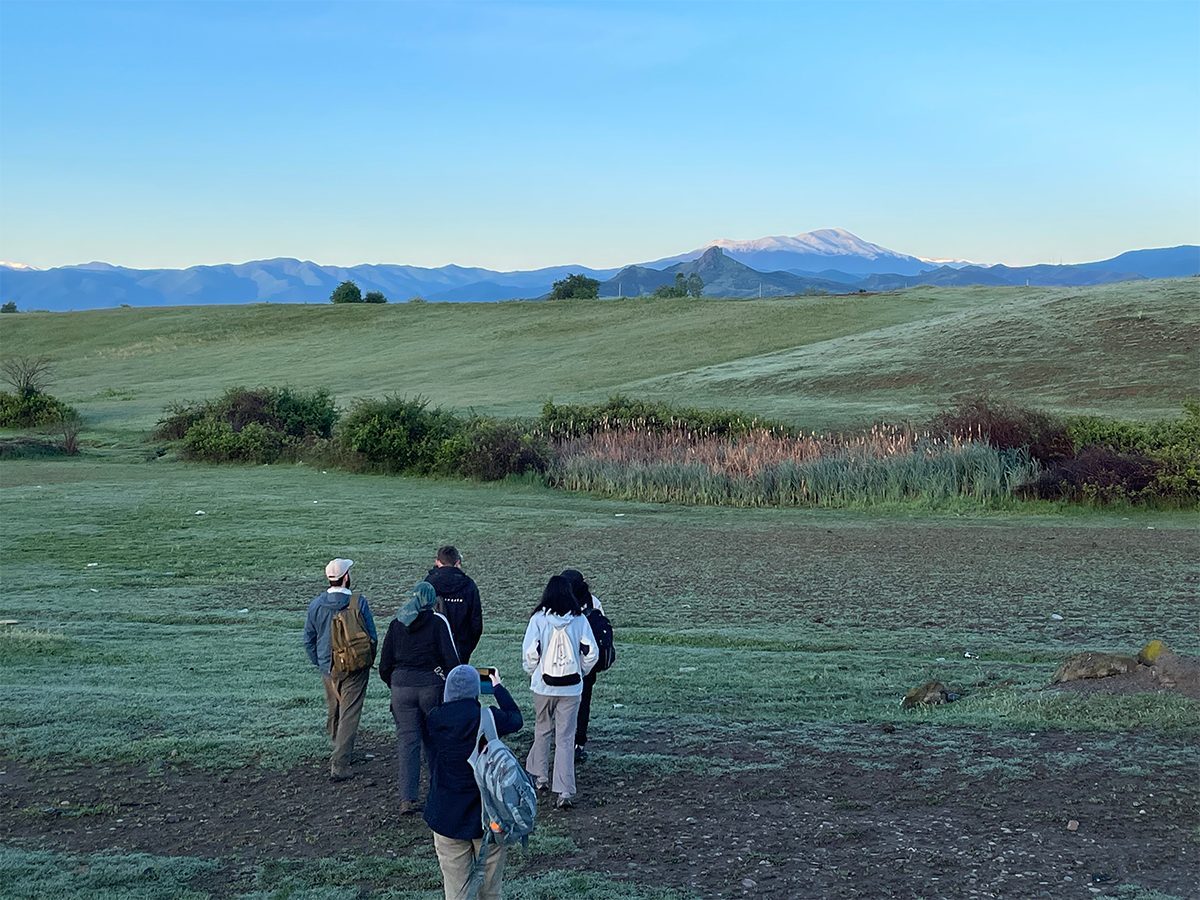 |
|
Students head out on survey led by staff member |
In the summer of 2023, NMC's archaeological field school, co-directed by Stephen Batiuk (Director of the GRAPE), Mindia Jalabadze (Georgian National Museum), and Khaled Abu Jayyab (Course Instructor), completed a highly successful six-week program from May 1 to June 12, 2023.
Fifteen students and volunteers participated in the project, excavating sites dating to the Neolithic, Chalcolithic, Early Bronze, and Late Bronze Age, and learned excavation techniques and recording methods, survey methodology, introduction to GIS and drone photography, ceramic and lithic analysis.
They also participated in hands-on experimental archaeological workshops where they learned to make their own pottery and stone tools. Weekend excursions brought them to the capital city of Tbilisi, where they explored the Georgian National Museum, the monastic caves at Vardzia, the medieval fortress and Paleolithic excavations at Dimanisi, and wine tours in the region of Telavi, and more.
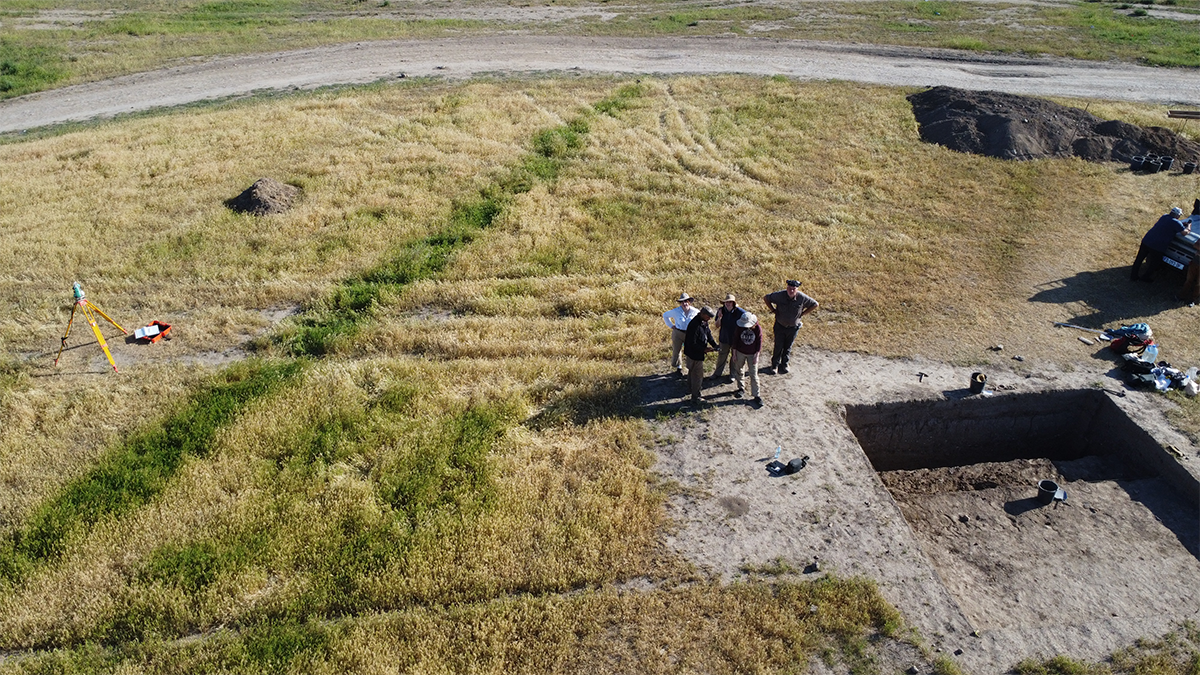 |
|
Drone photo of the site of Kaitmaze |
Stephen Batiuk emphasizes, "This course is an intensive, personal course where students get practical, hands-on training in all aspects of the archaeological process (including digging, processing, and documenting), partake in ethnoarchaeological work, and weekly tours to important historical or cultural sites in Georgia."
"The main accomplishment of the project was finding the evidence for the world's earliest wine, which got our work world's attention and an entry into the Guinness Book of World Records. Also, the identification of a Chalcolithic site that has settlement of people from the Mesopotamian world shows how the area of the Caucasus was integrated to a significantly greater degree and much earlier on to the Mesopotamian world than we could have ever imagined a few years ago."
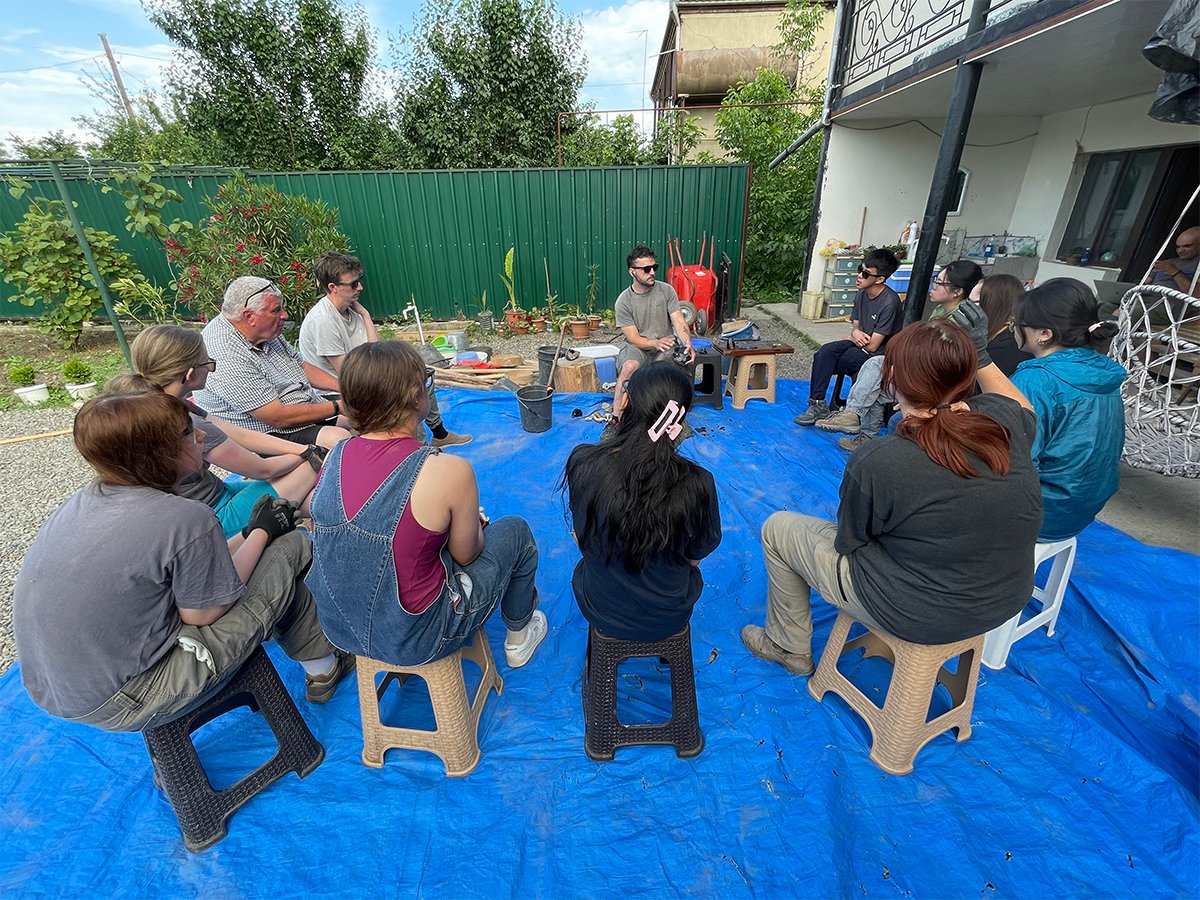 |
|
Group of students and volunteers learning to make stone tools from obsidian by staff member |
Khaled Abu Jayyab, who holds a PhD in Near Eastern Archaeology, adds, "The field school has many unique features. First, I would say the active focus on experiential learning. We have a number of activities involving the students producing pottery, stone, and bone tools. These activities help the students in two ways. First, they help them tackle complex conceptual frameworks pertaining to the material production of lives, which they would have otherwise been only theoretically exposed to in textbooks. Second, it helps them understand the processes (including the efforts and spatiality) in which the artifacts they are excavating were created through enacting the process of their manufacture."
He says, "A trip to the medieval monastery of Vardzia is always memorable. Vardzia is nestled in a deep and picturesque gorge. The drive through that lush gorge is probably where many students fall in love with Georgia."
|
Drone video and photos of the monastic caves at Vardzia |
Nadia Hnetka, a fourth-year undergraduate student in NMC and Archaeology, was eager to gain field experience. Never having travelled internationally before participating in the GRAPE field school, she was genuinely excited about the opportunity to explore and learn more about the world beyond southern Ontario. While researching field school opportunities, a flyer for GRAPE field school caught her eye and left her with a positive impression of the social environment on the project. Consequently, she decided to apply.
"I made so many great memories. I learned that I love field work - every day, I was excited to go digging and learn something new about the site we were working on. I felt myself becoming more efficient with each passing day, and by the end of the dig, I felt like I had begun to develop a sense of intuition in the field. I remember on one of the final days of digging, we hit a surface when we were troweling, and being able to notice the change in the soil as we were digging made me feel so accomplished. Also, there's nothing quite like the feeling of discovery when your team finds something interesting!", Nadia says.
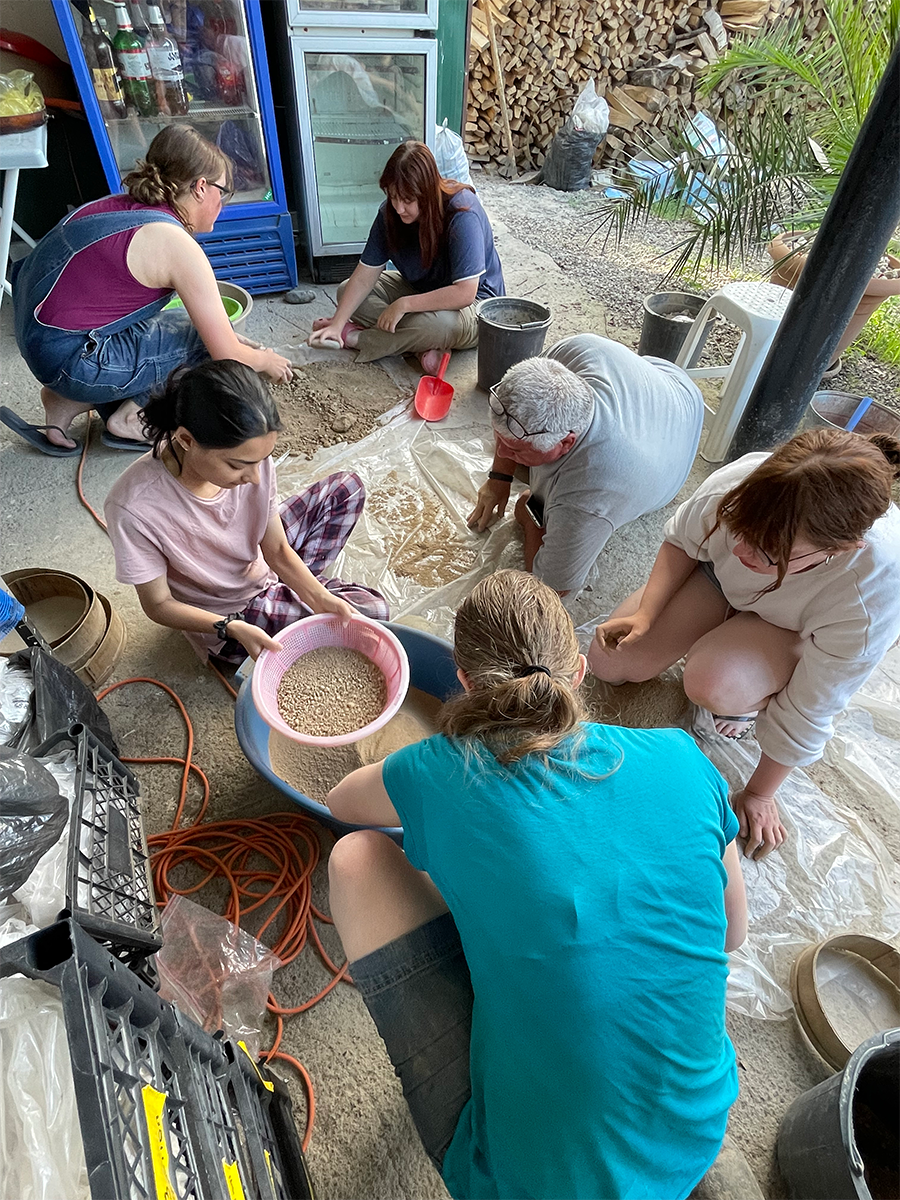 |
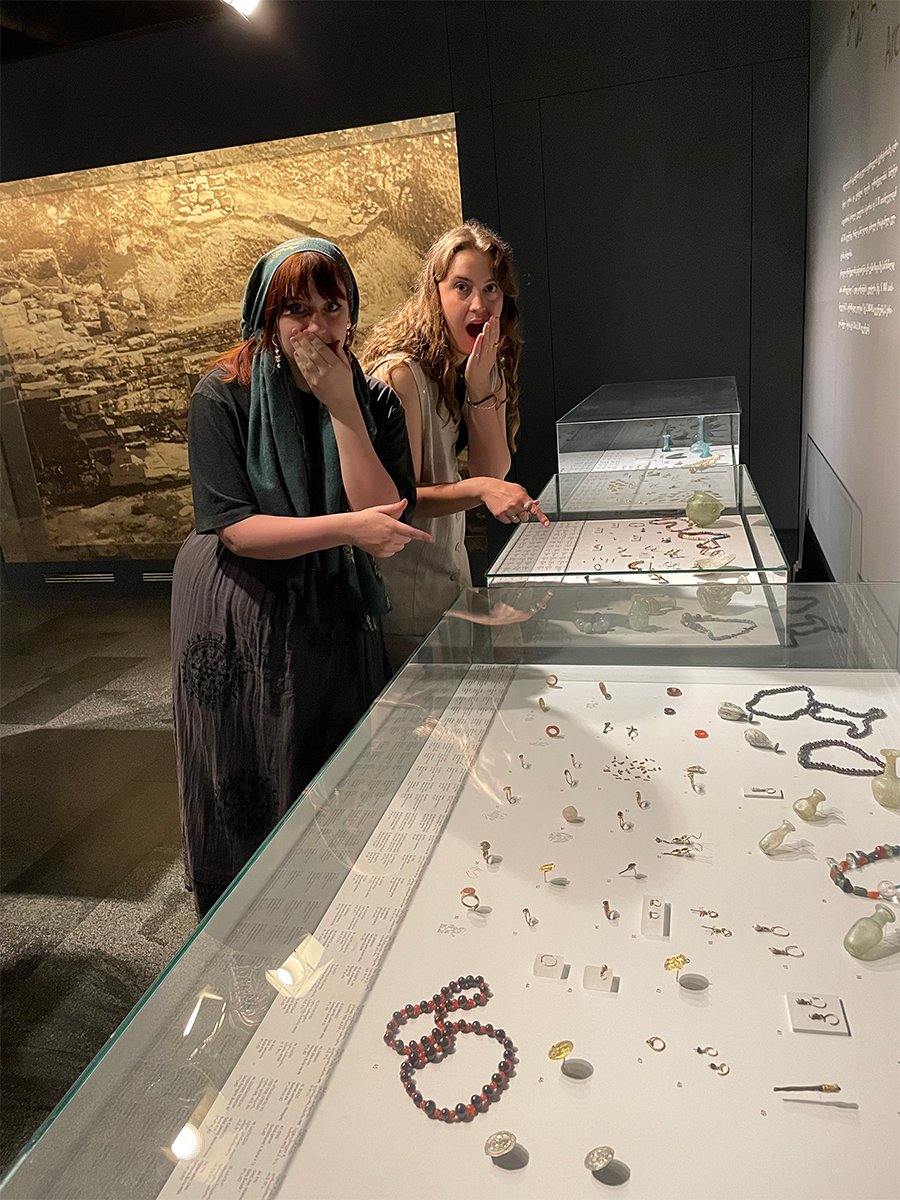 |
| Group of students processing clay to make pottery | Students explore some of the Museum exhibits |
|
(Photos Courtesy of GRAPE Project) |
|
In the field, I'm always excited when the students start finding their first artifacts and the childlike joy on their faces. Just realizing that they are handling something made, used, and last touched by someone 8000 years ago always induces a reflective moment.
- Khaled Abu Jayyab -
Syeda Sukena Zehra, a third-year undergraduate student in NMC and Archeology, is deeply interested in how culture shapes, blends, and transforms into various traditions, politics, and histories observed worldwide. Having previously volunteered in Near & Middle Eastern Labs, she honed skills in studying microlithics and extracting minute details of people, places, and activities from sediments.
When she heard about GRAPE's summer field school, her goal was to apply these skills in Georgia, examining the relationships between changing cultures and the continued habitation of the region between the Kura and the Araxes.
One of her most rewarding experiences occurred at the sites of Kaitmaze, an Early Bronze III age site. She and her peers were trained to identify historical evidence, differentiating between periods based on ceramics on site, and learning excavation management, handling bones vs. stones, registration, and contextual analysis. With these skills, she had the honour of supervising alongside Mindia Jalabadze, the chief curator at the Georgian National Museum, on a second site.
| Syeda Sukena Zehra at the Georgian National Museum | Syeda Sukena Zehra at the monastic caves at Vardzia |
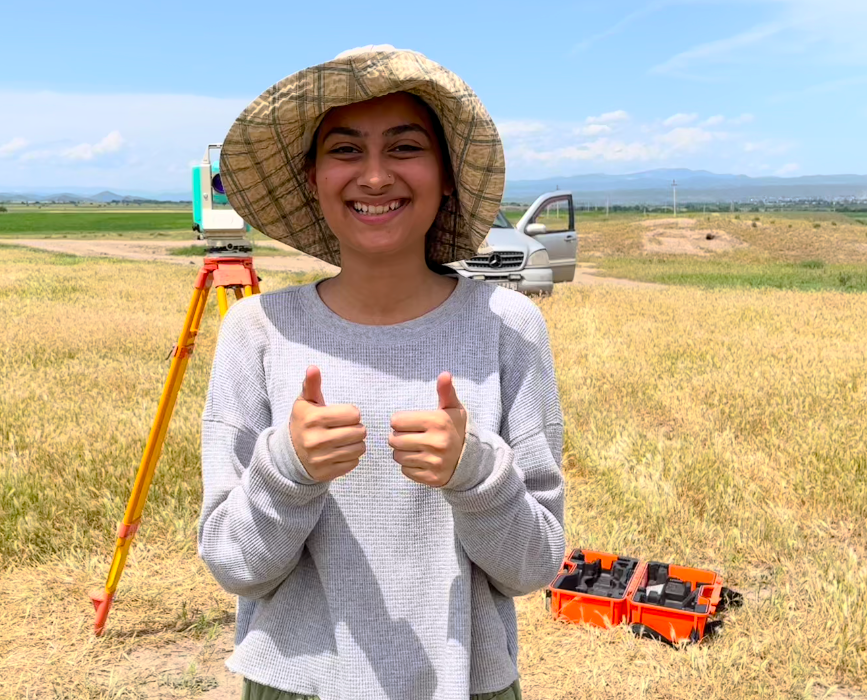 |
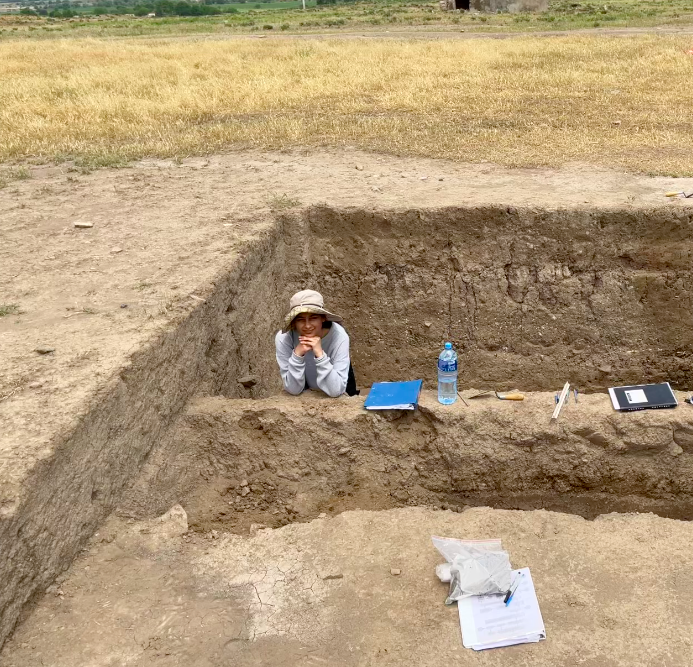 |
|
Syeda Sukena Zehra at the site of Kaitmaze (Photos Courtesy of Syeda Sukena Zehra) |
|
Exposure to a distinct culture, language, and cuisine can present an exciting adventure or challenge. Also, residing in confined spaces with individuals possessing diverse personalities and habits will likely give rise to certain difficulties.
Nadia recalls, "My greatest challenge during the program was adapting to the novel environment while keeping up with my tasks and responsibilities. The program is fairly intensive, so every day, there is work to be done in the field, things to process back at the dig house, and course assignments to write. You're also living with many people in the dig house for the duration, who you may or may not be familiar with. So, it's a lot to take in at once. Luckily, there were many cool people on the project, so staying in the dig house ended up being a lot of fun for me. I built some really robust friendships that we've maintained even now that we're back in Toronto."
"Having never travelled alone internationally, I was quite timid about the dynamics the group would offer. However, from the moment of arrival, the dig house felt like home as we mingled with new friends. Some came together from Canada, some from America, and our lovely host in Georgia. Simple as sitting together for dinner or as extravagant as hiking the monk caves at Vardzia, renting homes to vacation around Tbilisi, all brought very different people very close.", Sukena says.
"The summer program offered more than just a course credit; we built long-lasting friendships, stories, and skills that advanced our academic learning and networks when we returned to our classrooms."
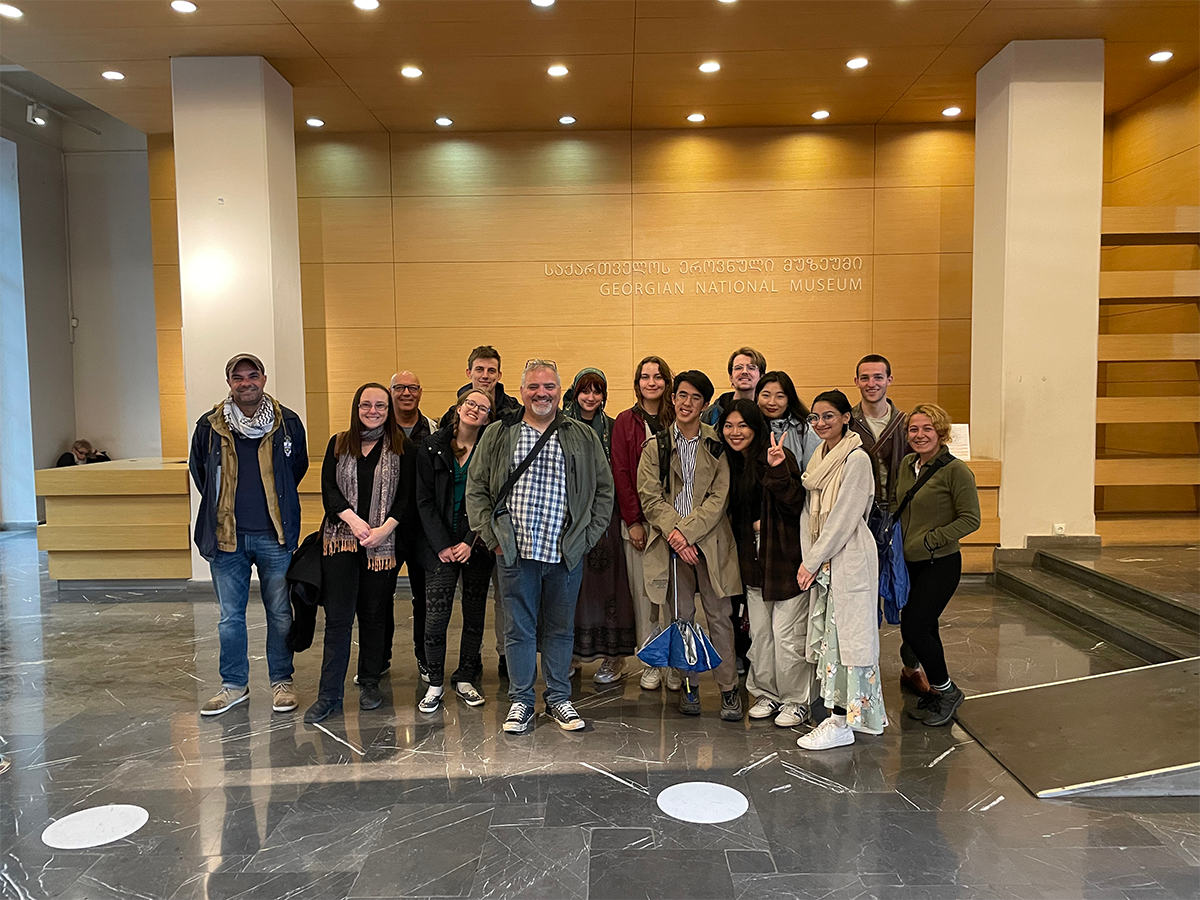 |
|
The GRAPE team visits the Georgian National Museum in Tbilisi |
Interested in the NMC’s field school?
Visit the NMC Field School Information Page


